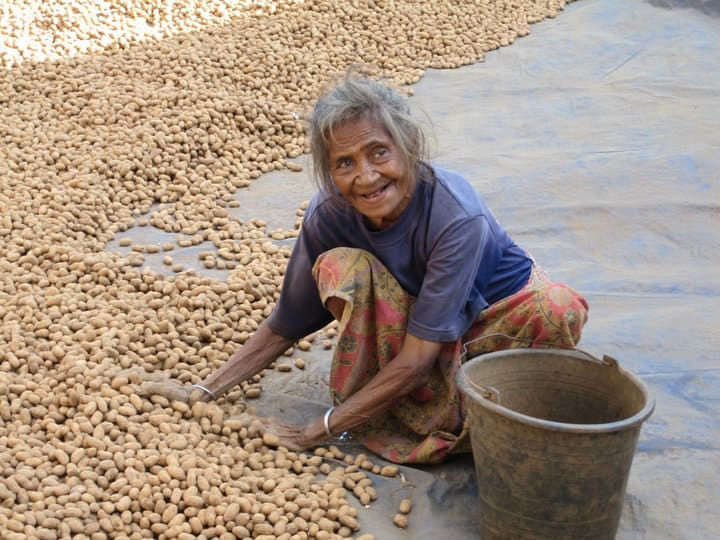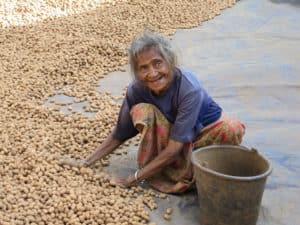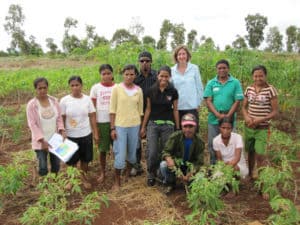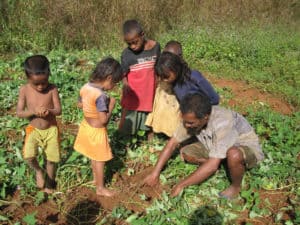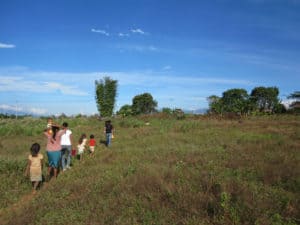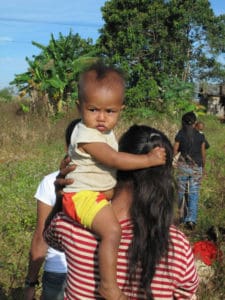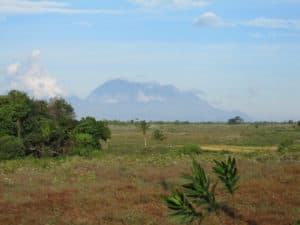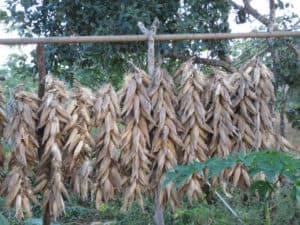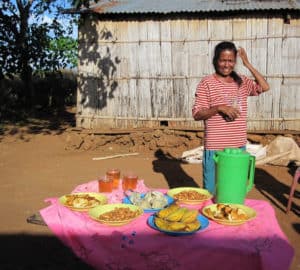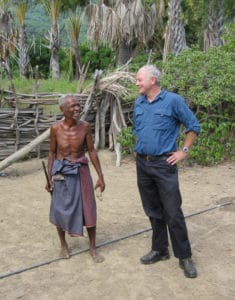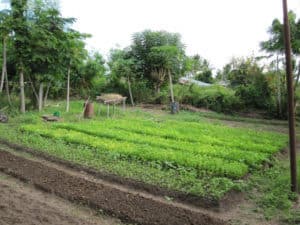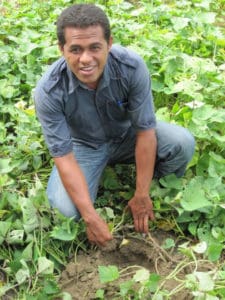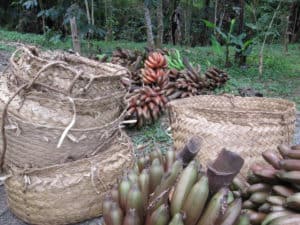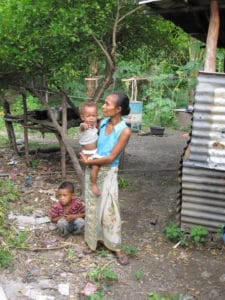Broadcast in June 2010 on ABC Radio Australia, an ABC international broadcast service.
Poor yields and unpredictable weather are part and parcel of any farming operation, but imagine the impact it can have when your average income is less than a dollar a day.
That’s what farmers earn in East Timor where hunger has a season of its own. Australian aid agencies are working closely with locals to improve the situation.
Nicky Redl reports from East Timor.
TRANSCRIPT:
NICKY REDL: Food insecurity is a serious issue for people in rural areas of East Timor in Southeast Asia.
Farmers don’t have big acreages and the dry season lasts for eight months of the year. Having enough food to feed their families is for many people a constant struggle.
One of the ways to improve living standards is to plant crops that produce more than the traditional varieties.
The identification, testing and distribution of such seed varieties are what the Australian funded aid organization Seeds of Life has been working on for the past ten years.
Rob Williams is the program’s team leader.
ROB WILLIAMS: It’s been a very steep learning curve for me, coming from an Australian business model of farming to a subsistence style of farming.
Telling people to put on fertilizer or putting this pesticide here doesn’t work in Timor. People have no access to fertilizer. People have no access to herbicides.
So you have to look at technologies that are suitable for subsistence farmers and varieties are a very good technology that way. The technology reproduces itself.
Each farming family here farms their one hectare of land and they plant a large range of crops. It is not just corn, but it’s beans, it’s pumpkin, sweet potatoes, cassava. They harvest each species in turn, and store them away for the whole of the dry season.
So they get one shot at producing enough food for themselves.
NICKY REDL: And how many people manage that, to produce enough food for themselves and their family?
ROB WILLIAMS: We suspect that most of them don’t produce enough food for their family for the twelve months of the year. Most families have what we call a hungry season here in East Timor, where there is not enough food produced to feed their families.
NICKY REDL: What are the key focus areas at the moment that you are looking at?
ROB WILLIAMS: For us corn is one of the biggest focuses. Most people in East Timor eat corn every day.
Our current release corn varieties are yielding 40 percent more than the traditional local varieties that people grow. That means for the same amount of work, the same amount of land, they produce 1.4 ton per hectare instead of the 1 ton per hectare.
This brings families from barely enough food to having a surplus of corn for the twelve months of the year.
Our focus in the next few years is to identify even higher yielding maize varieties that keep well, that taste good, and giving farmers access to those seeds across the whole country.
NICKY REDL: Glen da Costa has been testing new varieties of corn on his farm near Baucau a few hours drive east of Dili.
He says the variety called Sele is very strong. It’s not getting knocked down by wind as easily as local varieties and it has a very high yield. He says one plant can have two or three cobs and each cob is big.
So after receiving five kilos of this corn variety from Seeds of Life last year, this year he could harvest enough to plant the stronger variety on his whole farm.
Rob Williams says the programs biggest achievement is that they have been able to distribute enough seed to farmers that the government didn’t need to import any this year.
ROB WILLIAMS: Last year we distributed more than 80 tons of rice seed to farming families and 20 tons of maize seed. Every year since 1999, which is when East Timor separated from Indonesia, the government of East Timor has important maize seed and rice seed to distribute to farming families in need.
This last wet season, the East Timorese government didn’t import any seed. So this year because of seeds of life, this country was self-sufficient for modern, high-yielding seed.
NICKY REDL: Generally this country is still a food importer, do you think it has the capability in the future to be self-reliant there?
ROB WILLIAMS: It certainly does. It’s a country of 1.1 million people, with 44,000 hectares of rice, about 80,000 hectares of corn production. With the appropriate inputs, the appropriate guidance, the appropriate direction to the farmers, there is no reason why this country couldn’t be food sufficient.
(Farmers talking and laughing)
NICKY REDL: And while life on the land is very tough for farmers here, they still find always plenty to laugh about – for example, my name. In the local language called Tetum, Nicky means bat, like the nocturnal flying mammal, and that, they reckon, is pretty funny.
(More laughing)
